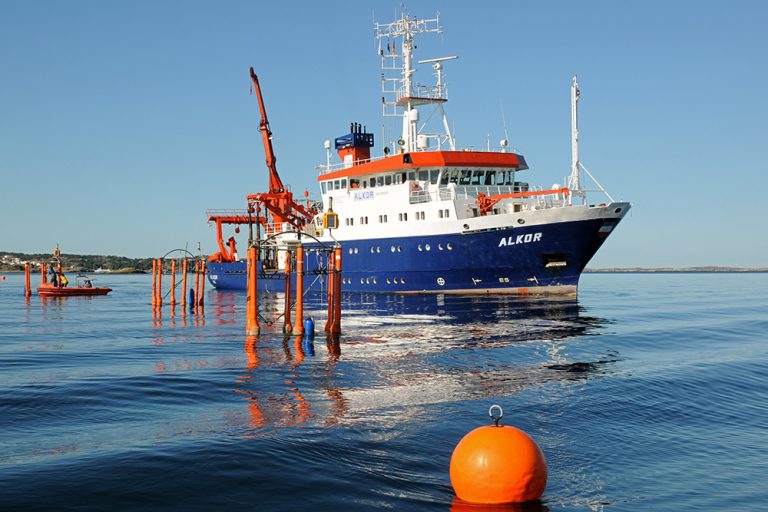Research network on ocean acidification on its final stretch
BIOACID scientists team up for an integrated risk assessment

An in-depth assessment of possible impacts of ocean acidification on the environment, society and economy and the development of management options for decision makers are the primary goals of the German research network BIOACID (Biological Impacts of Ocean Acidification), now entering its final funding period. The Federal Ministry of Education and Research (BMBF) supports the third phase with 4.3 million Euros.
The German Research Network on Ocean Acidification BIOACID (Biological Impacts of Ocean Acidification) enters its final phase: On October 6 and 7, 2015, the participants meet at GEOMAR Helmholtz Centre for Ocean Research Kiel to coordinate their activities for the final funding period. In addition to integrating the information available from individual research areas, the scientists aim to present a joint synthesis report at the end of the year 2017. The third phase of the project involves ten German institutions and is funded by the Federal Ministry of Education and Research (BMBF) with 4.3 million Euros.
BIOACID has investigated the impact of ocean acidification since 2009. As one of the largest national research programmes on this topic, the project has been instrumental in quantifying the effects of “the other carbon dioxide problem” on marine life and in unravelling the underlying mechanisms. “As our understanding of the impacts of ocean acidification was building up, we were able to broaden our focus from marine organisms to communities and ecosystems, addressing ocean acidification in combination with other environmental factors”, says Professor Ulf Riebesell, marine biologist at GEOMAR and coordinator of BIOACID. “Another key issue in which BIOACID took the lead concerns the potential for evolutionary adaptation to ocean change.”
In its final phase BIOACID will develop an integrated assessment on the expected impacts of ocean acidification on marine ecosystems and the services they provide to society. To this end, the marine biologists, chemists and physicists are further expanding their cooperation with economists and social scientists. “Our primary task will be to identify societal and economic consequences, to develop management options for decision makers and to communicate our results to the wider public”, Professor Riebesell announces.
“Results of BIOACID are already incorporated into the Fifth Assessment Report AR5 of the Intergovernmental Panel on Climate Change IPCC. For the first time in this report, acidification was given ample consideration along with other ocean changes, such as temperature and sea level rise. For the upcoming climate negotiations in Paris, ocean acidification will be considered side by side with global warming to define the limits for further carbon dioxide emissions”, Professor Hans Pörtner adds. The animal physiologist at the Alfred Wegener Institute and deputy coordinator of BIOACID is coordinating lead author for ocean issues in AR5 and the expert dialogue of IPCC and Framework Convention on Climate Change (UNFCCC). “Ocean acidification has reached the political agenda – and the final phase of BIOACID will be completed just in time to inform the forthcoming sixth IPCC assessment report.”